“Defend our ancestors, refuse tomb relocation!” “The land is my mother, not your ATM!” These roars and protests come from the fierce Katipul warriors. Refused relocation of the 6th public cemetery in 2010, Jhihben wetland solar power development in 2018... During every major moment at the village, Katipul Youth Association is always the first stand on the front line, following the ancient precept of “collaboration in solidarity” of palakuwan and devoted to safeguarding their homeland.
The youth association is made up of unmarried male in the village, they were all raised and trained in takouvan and palakuwan, they have the steadiness and a brave and resolute spirit. Whenever the village encounters problems, they stand like warriors in the past confederation age, forming a strong military fortress to defend and protect the village and their people.
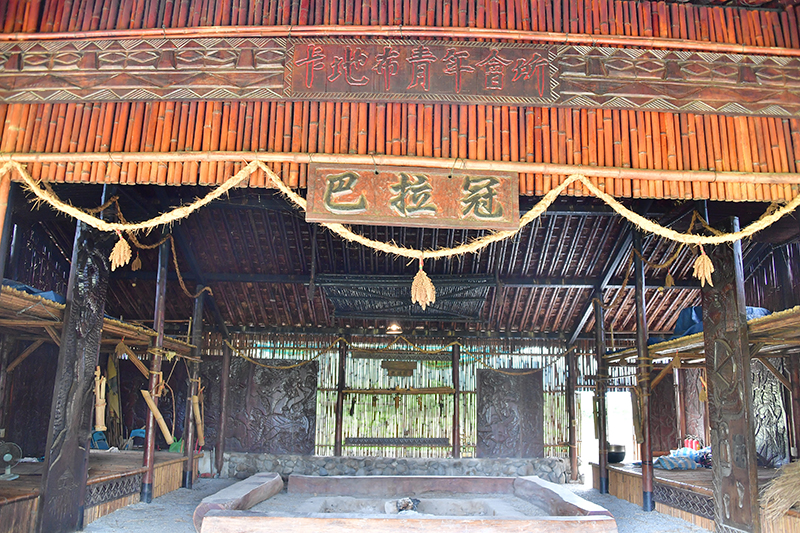
Palakuwan is the male's house for Pinuyumayan young men, also the heart where village culture is continued. Whether it is passing on knowledge, organizing rituals and ceremonies, or training the physique and courage, everything takes place at the palakuwan.
Modern Palakuwan Warriors
in Charge of All Affairs in the Village
One weekend afternoon in May, cheerful indigenous rap music is heard from an uncultivated patch of grassland outside Eastern Marine Biology Research Center of Fisheries Research Institute, a group of burly guys with dark skin were humming and chatting away while cutting sogon grass. They skillfully bundled up the cut sogon grass and stacked on the side, repeatedly.
“We need to repave the takouvan and palakuwan with a new layer of sogon grass each year, and major renovation is required once every three years.” Lin Yu-Chang, president of Katipul Youth Association explains that this is the annual routine work of the youth association, they call on the youth and village people sometime around mid-May, charter a truck to Manzhou Township in Pingtung County to work for six days, cutting a large amount of sogon grass and bring them back, “each roof needs roughly 1,000 bundles, now we only have around 200 bundles.”
Even though they no longer need to fight for resources to survive, the palakuwan warriors are still rather busy on a daily basis, not only do they have to safeguard their village, everything from preparation for rituals, weddings and funerals, crop harvest, collecting sogon grass and even misbehaving and naughty children, depend on the assistance of youth association. Lin Yu-Chang laughed, “in addition to village warrior, we are also a lot like temp workers, doing everything in the village.”
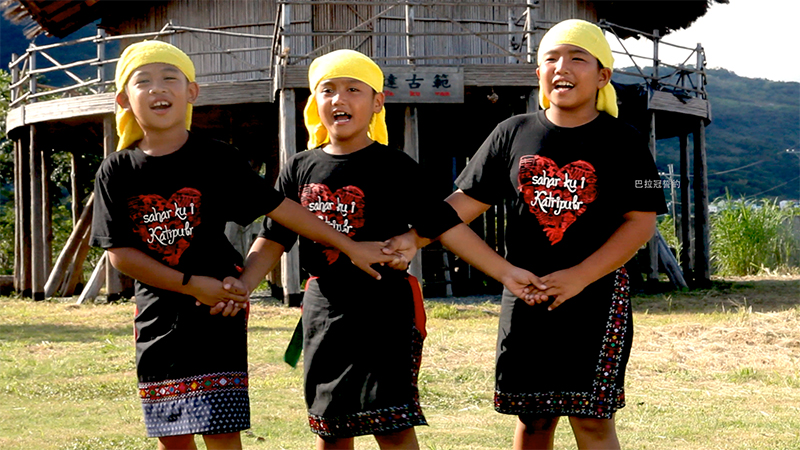
Village boys enter takouvan at the age of 8 and learn from a young age to work hard for the land they inhabit. During the mangayangayaw, takouvan ties yellow cloth over the head and receives rigorous wilderness survival training.
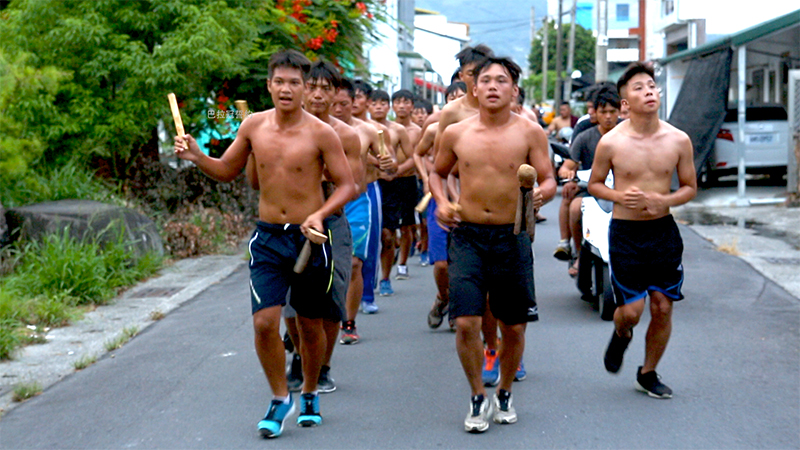
Boys must receive strict physical training as teenage to become a true warrior and safeguard the village.
Collective Revitalization of Village Culture
by the Youth Started from a Song and Dance Performance
The traditional Pinuyumayan people is a matrilineal society, with the need to fend off enemies, they designed the age class and male house system targeting the male. The age class system is different in every village, but boys generally leave their original home at the age 9 and enter takouvan (for youth) to receive group education and live a group life; later they enter palakuwan (for young adult) to receive stricter training and take charge of fighting the battle with outside, labor, and execute rituals preparations, they only leave palakuwan to form their own family after they are married. If in the future they are widowed, they need to return to live in the palakuwan.
Just as other indigenous villages are adversely impacted by the modern society, the traditional culture and system at Katipul was once interrupted as well. The opportunity for recovery originated from a song and dance performance project in 1992. Indigenous Song and Dance Series – Pinuyumayan People organized by director Yu Kan-Ping was performed at National Theater, and the performance project lined up every Pinuyumayan villages in Taitung to perform their most unique song and dance for rituals. The young men from Katipul Village experienced the cultural context and essence of different Pinuyumayan villages and was extremely shocked, so they began thinking about recovering the culture of their own village.
Upon returning to the village, they began organizing the youth association, rebuild architectures including kaluma'an, takouvan and palakuwan, and actively engaged in revitalizing the traditional culture of the village and organized rituals. The age class system was recovered under the united will of the village.
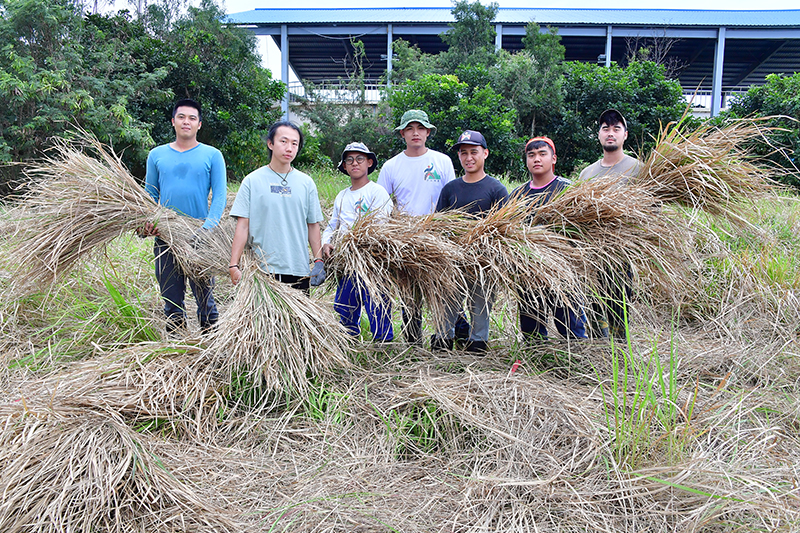
Palakuwan requires regular maintenance, youth in the village will cut sogon grass together and learn firsthand how difficult it is to build the place, during the process, they understand the meaning of cultural education and learn to appreciate the resources around them.
Every Boy Looks Forward
to Entering Palakuwan
“Boys in the village spend almost everyday after school and every holiday in takouvan and palakuwan.” Born in 1990, vice-president of Katupul Youth Association Ma Jing recalls the boys growing up, playing together and receiving training in takouvan and palakuwan, their memories are inseparable from these places, and bonded with their ale (same class buddies) more than with family.
To cope with the changing time, modern age class no longer requires boys to leave their original home and live in takouvan, instead, they stay with takouvan for three days and two nights before the mangayangayaw (Monkey Ritual), camp in the mountains, courage tested, and learn about plants and how to set up traps. On the day of the ritual, they will stab a grass monkey at the ceremony as a display of the boy's courage and insight.
But takouvan is not really the age class, boys have to wait until 14 years old, experience traditional rituals including pep talk, drink pepper water, smear charcoal over the face to officially enter palakuwan, and have the chance to become a Pinuyumayan man. Inside the palakuwan, where women and children are not allowed, they move up a class every three years, the lowest class is valisen, in addition to the daily labor and chores, they must follow instructions from the upper classes, be spanked by bamboo board when they make mistakes or move up a class, starve when it's the Harvest Ritual, wrestle, and run marathon to show the spirit of a true man. All the seemingly assiduous trials never stopped Katipul boys from aspiring to enter palakuwan.
At the Harvest Ritual each year, palakuwan young adults would put on traditional clothes and a yellow headband, and parade the streets dancing the swift and fierce spirit dance (warrior dance), completely idolized by boys in the village. “When we were young, my friends and I would imitate the moves of the spirit dance, looking forward to entering palakuwan,” shared Lin Yu-Chang.
However, ale promoted together and enter palakuwan enjoys not only rewards together, they are punished together as well. “If you make a mistake, it means your ale didn't do a good job of supervising you.” Lin Yu-Chang said that there was once a young man who got drunk the night before tomb-sweeping and could not get up in time the next day. His family asked the youth association to take care of him, so he gathered everyone together and used bamboo board to spank the young man and a dozen of his ale. “Later on I thought, if he didn't do well, that means his upper class didn't teach him well, so they must be punished as well, we traced and spanked all the way up the classes until realizing that I am the president leading everyone, so I should be punished as well. So the vice-president and I ended up spanking each other,” he said laughingly.
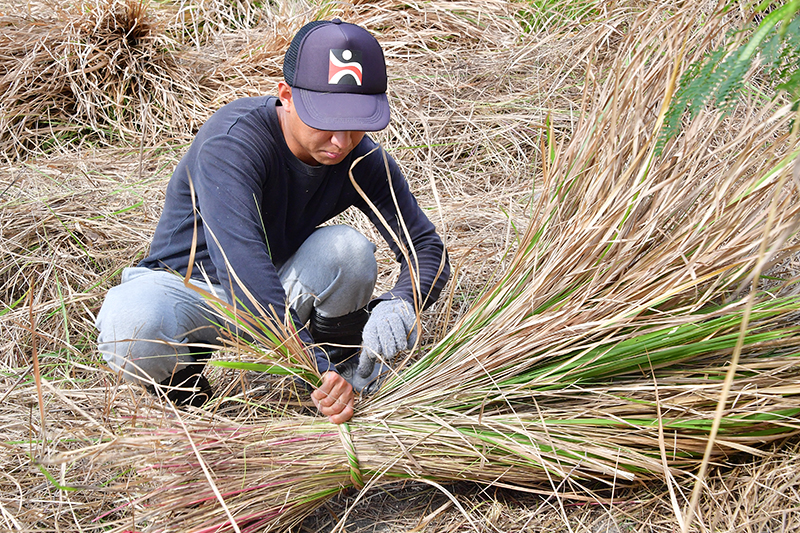
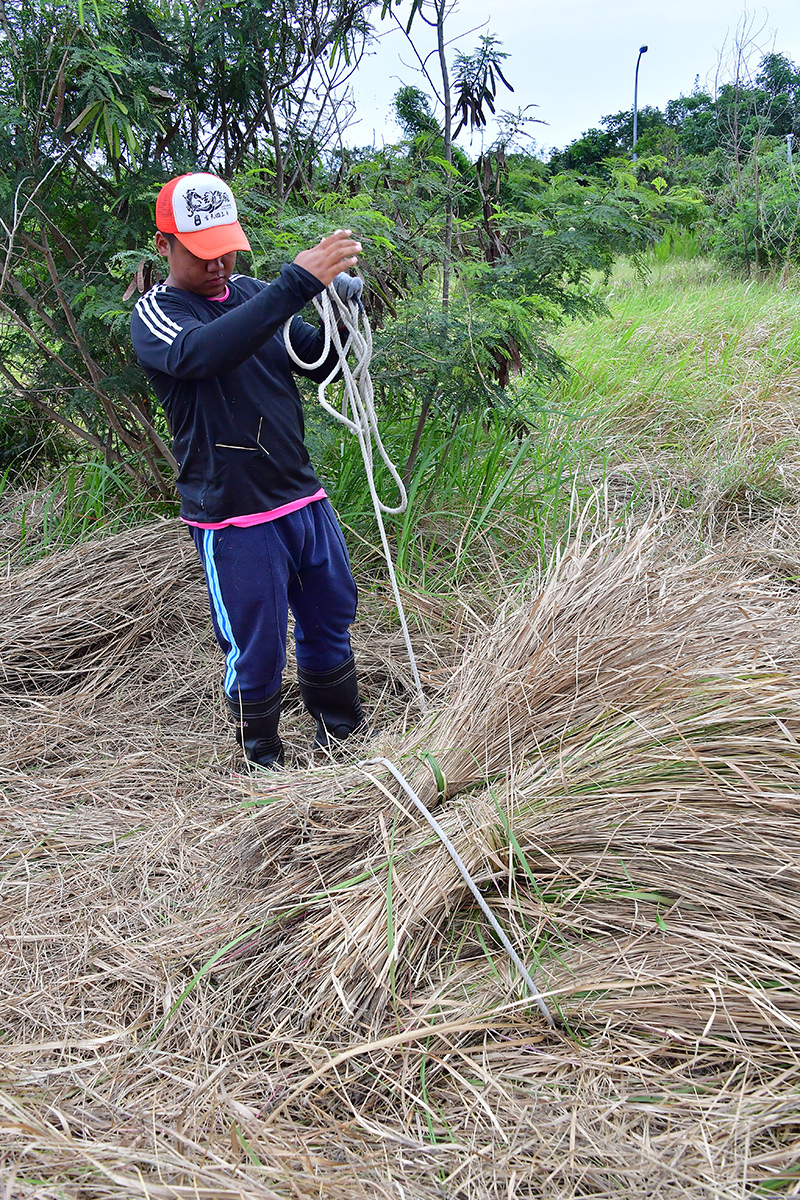
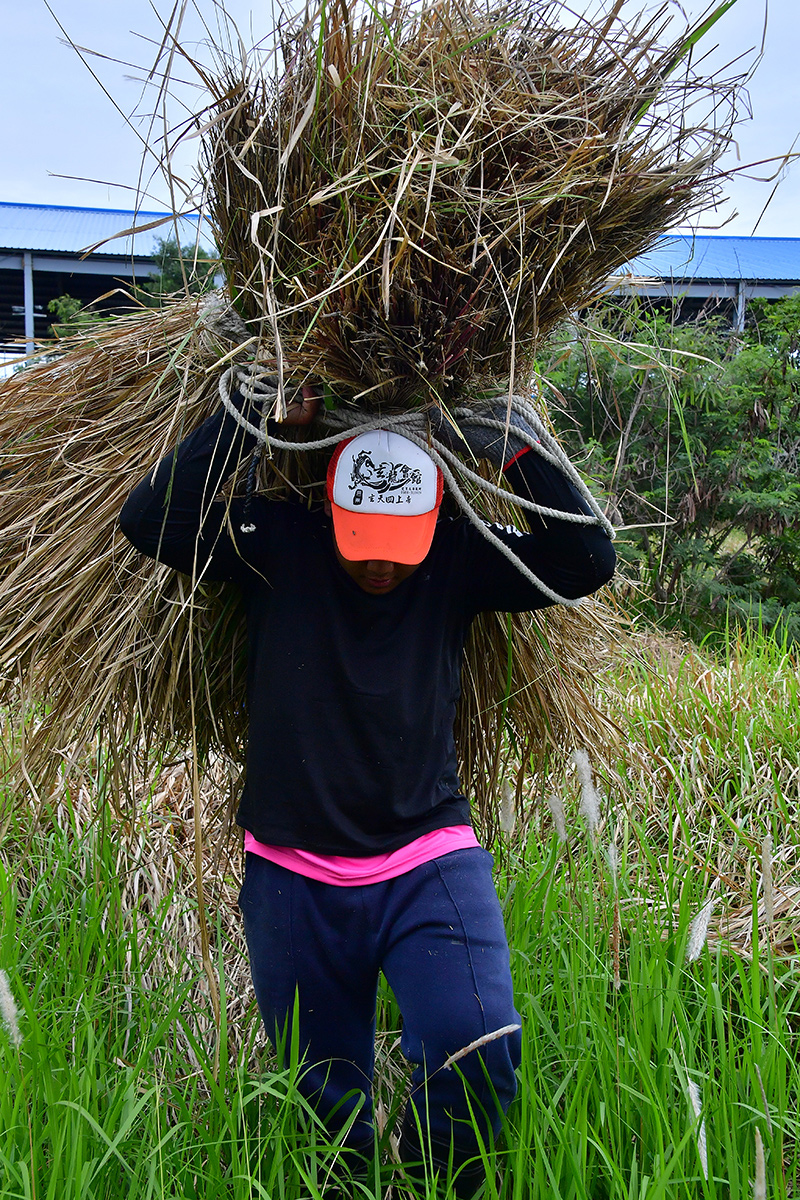
Living a modern life filled with temptations, the boys are still willing to spend the whole weekend laboring away under the sun, cutting sogon grass then gather in bundles and carry to the truck, sweating away for their village.
The Unspoken Concerns
of Inheritance
Although the age class system is revitalized, the cultural inheritance still faces many challenges, “for example, some of the ale that entered palakuwan with me left halfway,” says Lin Yu-Chang.
Some left to find work in another city, some stayed in the village but never entered palakuwan or participated in youth association again. Most people left because they are not used to the distinctly divided class system, or unwilling to be responsible for the miscellaneous village affairs and responsibilities. Coupled with the effect of dwindling birth rate, the number of young adults entering palakuwan falls each year.
Lin Yu-Chang admits that these are the unspoken concerns in the village, “young adults are the main force in the village with the youth association taking on the majority of public affairs, but the year-by-year decrease in the number of young adults makes it difficult to facilitate many things, and this requires the village to brainstorm together for a solution.”
“People in our village are unwilling to quit, therefore everyone who takes over the youth association and the mission of palakuwan each generation have the tenacity to not let things end with me.” Lin Yu-Chang believes that traditional systems must adjust as times change, but youth association, age class system and palakuwan will always be the essential spirit binding the village together.
The age class system stemmed from the need to fight battles, nowadays men no longer need to fight in the battlefield, but palakuwan still passes on the spirits of solidarity, obedience, courage and to respect the wise and venerate the worthy, and teach boys in the village to take their determination and identification, and become a modern day Katipul warrior to safeguard their own village and land. “I don't actually think of myself as doing something as mighty as cultural inheritance, I am simply leading the younger ones to do what we did before, just some everyday stuff that made me happy…I want the same experience to be passed on to the next generation so they can experience what I experienced,” Lin Yu-Chang shared freely about show he really felt.
The work of cutting sogon grass on uncultivated land is still ongoing, the 16-year-old Kao Chun-Hsien is a valisen, the lowest class in palakuwan, and he is quietly cutting grass along side the older ones. We asked him if the work was tough. “Of course it is, but I'm very happy to contribute to my village, it's worth it,” he said shyly.




